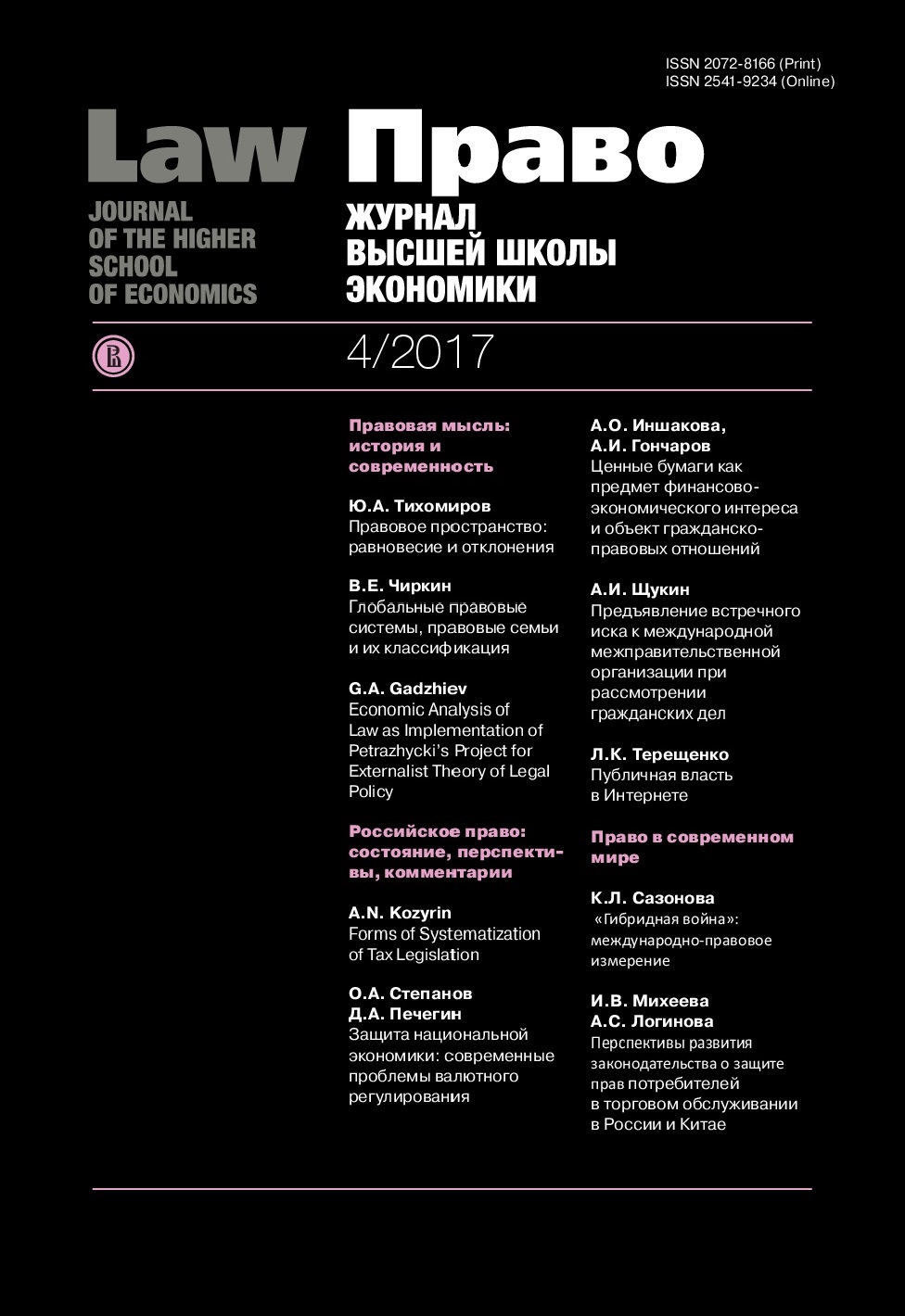Sources of Law in a Religious Legal System: Common Paradigm Behind External Differences
Abstract
The article analyses the different sources of religious legal systems, principally the sources of the canon law of the Christian church, and it discovers a common paradigm shared by the seemingly different sources of different religious legal systems developed within the Judeo-Christian Biblical legal tradition. The author analyses, on the one hand, the decretal letters of the popes, which formed the main part of the medieval corpus of canon law in the Western Church; and, on the other hand, the writings of the Holy Fathers in conjunction with the imperial legislation and the canons of the Church Councils in the Eastern Church. This analysis elucidates a common paradigm for both traditions of canon law, which may be characterized as an ‘authoritative-instructive’ paradigm. The article shows that the instructive ‘pole’ within that paradigm is a distinctive feature of a religious legal system as such, and goes on to demonstrate its existence in the predecessor of the Christian legal tradition—Jewish law--and to outline similar features in such sources of Jewish law as rabbinic rulings, the King’s Law (the enactments of secular rulers in the context of the Halakha) and the responsa. The key point is that the common paradigm expresses itself in a seemingly different manner mostly in response to external factors—the political, social, and cultural differences between the societies in which each respective system of religious law operates—and not because of religious or theological differences in the actual teachings of the religious legal systems.
Published
2017-03-02
How to Cite
Vishnevsky A. (2017). Sources of Law in a Religious Legal System: Common Paradigm Behind External Differences. Law Journal of the Higher School of Economics, (4), 46-58. https://doi.org/10.17323/2072-8166.2017.4.46.58
Issue
Section
Legal Thought: History and Modernity





